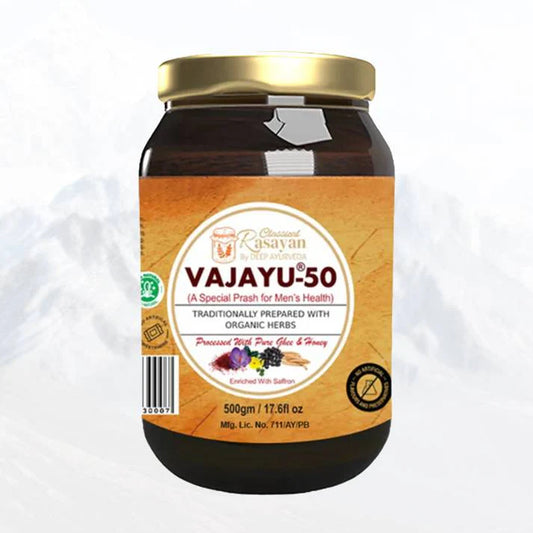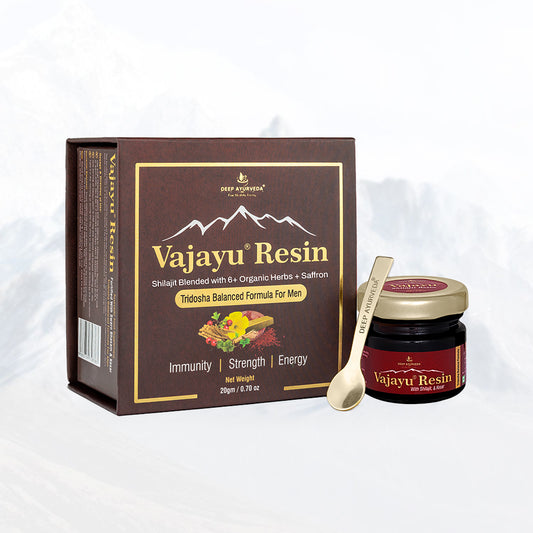The human body contains numerous chemicals and hormones. Keeping everything in perfect balance will result in a healthy body. Diseases will arise from either excessive or insufficient production of these hormones. The thyroid gland is responsible for producing one such essential hormone.
Note: If the hormone is secreted insufficiently, it causes a disease known as Hypothyroidism. Deep Ayurveda offers specialized support for Hypothyroidism treatment through Hypothyroidism Care and Ayurvedic Management Consultation tailored to your individual needs in Australia for these types of diseases.
Thyroid gland is a tiny, butterfly-shaped gland that sits at the front of the neck. This hormone helps to regulate the flow of energy throughout the body. It regulates the heart, lungs, digestive system, and other body functions.
So, it is important to take care of your body, particularly thyroid secretion. The thyroid gland regulates how the heart beats at different times, how food is digested, and other functions. As a result, when this hormone is present in excess, many organs are affected, leading to additional illnesses. At some point, the body begins to slow.
Women are more likely than men to have hypothyroidism. Any age can experience it. A blood test or the onset of any disease-related symptoms are two possible ways to diagnose it. This article will help you learn more about hypothyroidism treatment in Australia.
What are the Causes of Hypothyroidism?
There are two types of causes for hypothyroidism: primary and secondary. A disease that directly affects the thyroid and causes low thyroid hormone production is one of the main causes. A secondary reason could be an issue that impairs the pituitary gland's ability to stimulate the thyroid and regulate thyroid hormones by sending thyroid-stimulating hormone (TSH) to the thyroid.
The primary causes of hypothyroidism are far more common. An autoimmune disorder known as Hashimoto's disease is the most common of these underlying causes. This condition, which is inherited (passed down through a family), is also known as chronic lymphocytic thyroiditis or Hashimoto's thyroiditis. The immune system of the body targets and harms the thyroid in Hashimoto's disease. This stops the thyroid from producing and secreting enough thyroid hormone.
The following are the other main causes of hypothyroidism:
- Thyroiditis, or thyroid inflammation.
- Treatment for hyperthyroidism involves thyroid surgery and radiation.
- Iodine deficiency, or not having enough of the mineral in your body that your thyroid needs to produce hormones.
- Inherited ailments (a medical condition that is inherited by your family).
- Postpartum thyroiditis and viral illnesses are two more conditions that can cause thyroiditis.
What are the Hypothyroidism Symptoms?
The symptoms and signs of hypothyroidism often appear gradually over months or even years. Among them are possible examples:
- Soreness all over your body (may include muscle weakness).
- Having high blood cholesterol levels.
- Feeling down.
- Feeling exhausted (fatigue).
- losing interest in sexual activities.
- Having regular and heavy menstrual periods.
- Physical changes in your face (such as drooping eyelids and puffiness).
- Feeling bloated.
- Weight gain.
- Making your voice lower and hoarser.
- Having trouble remembering or ("brain fog").
- Being unable to tolerate cold weather.
- Dry, coarse skin and hair.
- Feeling numb and tingling in your hands.
What’s the Difference Between Hypothyroidism and Hyperthyroidism?
The thyroid produces insufficient thyroid hormone in hypothyroidism.
The amount of thyroid hormone differentiates hyperthyroidism from hypothyroidism. Thyroid gland produces relatively little thyroid hormone when hypothyroidism occurs. Alternatively, a thyroid that produces an excessive amount of thyroid hormone is known as hyperthyroidism. Hyperthyroidism is characterized by high thyroid hormone levels, which cause your metabolism to speed up. Hypothyroidism causes a slowing of the metabolic rate. There are several differences between these two diseases.
If you're suffering from hypothyroidism, you may have trouble dealing with the cold. Moreover, if you've experienced any of the hypothyroidism symptoms, you may be unable to tolerate the heat. They are at different ends of thyroid function. You should ideally fall somewhere in the middle. Treatments for each of these illnesses aim to get the thyroid gland's activity as close to the center as possible.
Ayurvedic Herbs for the Management and Treatment of Hypothyroidism
All of these herbs have been used traditionally for thousands of years to treat low thyroid. The kind and intensity of the symptoms, as well as the individual's Ayurvedic body type, decide which herbs and natural remedies for hypothyroidism are best:
- Punarnava (Boerhaavia difusa)
- Pippali(Piper longum)
- Kanchanara( Bauhinia veriegata and B.tormentosa and B.purpurea)
- Shankhapushpi(Evoluvus alsinodes)
- Kachanara guggul
- Ashwagandha (Withania somnifera)
- Guggulu (Commiphora mukul)
- Gokshura(Tribulus terrestris)
- Jatamansi(Nardostachya jatamansi)
- Dry Ginger
- Black Pepper and Long Pepper
According to Ayurveda, hypothyroidism should be manageable with a combination of healthy eating, exercise, meditation, and Ayurvedic and herbal remedies.
Hypothyroidism’s Treatment in Ayurveda

Hypothyroidism treatment in Ayurveda has existed since ancient times in India. This treatment method focuses on eliminating the cause of the disease's occurrence. rather than only reducing the signs and symptoms. This explains why the Ayurvedic treatment for hypothyroidism is simple, effective, and efficient. Another advantage is that no synthetic drugs or chemicals are used to treat the disease.
Ayurvedic texts mention a disease known as "GALAGANDA" and "APACHI," which can cause hypothyroidism symptoms. We have the best Ayurvedic doctor in Australia who specializes in treating hypothyroidism.
To combat Hypothyroidism naturally, it suggests the following:
- Avoid foods high in fiber, just like soy. Consuming too much fiber interferes with hormone absorption. It might also hinder the body's ability to produce or absorb the necessary hormones. Do not completely cut out fiber, though, as it is also necessary. Additionally, wait to take any medication right after consuming high-fiber foods.
- Iodine-rich foods include fish, shellfish, asparagus, potatoes, and white onion.
- Sweet potatoes, spinach, cabbage, cauliflower, broccoli, and soya should be avoided because they slow down the functioning of the thyroid gland.
- Rice and barley also aid in restoring hormone balance. Long-term neutralization of the hormone will be beneficial when taken in sufficient amounts.
- Hypothyroid patients should drink more milk.
- Patients should also eat more fresh fruits and vegetables. Cucumber is a widely available vegetable. This assists in treating the disease quickly.
- In addition, pulses such as Bengal gram and Moong Dal help to maintain thyroid levels and cure hypothyroidism more quickly.
- Brahmi, Ashwagandha, and Jatamansi are among the herbs used.
- Kanchanara Gulgulu and Punarnavadi Gulgulu are two commonly used natural remedies for hypothyroidism.
- Aside from the aforementioned diet pattern and internal medicinal intake, Ayurveda recommends a number of Panchakarma Therapies, such as Nasya karma, Dhara, and Shirodhara, as an external treatment for hypothyroidism.
If the above-mentioned steps are followed correctly, Ayurveda can provide a long-term cure for thyroid issues. You can also certainly manage symptoms and improve your health with the help of these Ayurvedic principles.
However, it’s important to have a medical professional guide you through this journey, such as an Ayurvedic consultation for hypothyroidism management, led by 18+ years of experienced practitioner Dr. Baldeep Kour. The doctor will determine the exact dosage, external therapies, and diet plan for each patient on an individual basis.
For more information and to become aware of this disease, book your appointment with Dr. Baldeep Kaur today for Ayurvedic diagnostics and personalized treatment plans.







